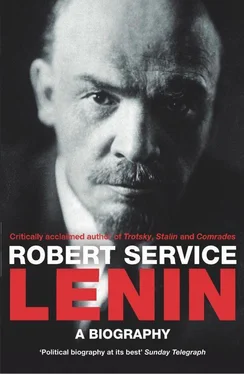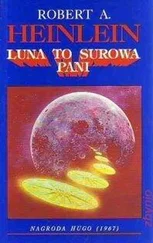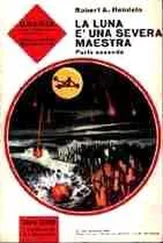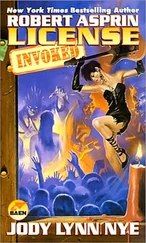Robert Service - Lenin - A Biography
Здесь есть возможность читать онлайн «Robert Service - Lenin - A Biography» весь текст электронной книги совершенно бесплатно (целиком полную версию без сокращений). В некоторых случаях можно слушать аудио, скачать через торрент в формате fb2 и присутствует краткое содержание. Город: London, Год выпуска: 2008, ISBN: 2008, Издательство: Pan Books, Жанр: Биографии и Мемуары, История, на английском языке. Описание произведения, (предисловие) а так же отзывы посетителей доступны на портале библиотеки ЛибКат.
- Название:Lenin: A Biography
- Автор:
- Издательство:Pan Books
- Жанр:
- Год:2008
- Город:London
- ISBN:9780330476331
- Рейтинг книги:4 / 5. Голосов: 1
-
Избранное:Добавить в избранное
- Отзывы:
-
Ваша оценка:
- 80
- 1
- 2
- 3
- 4
- 5
Lenin: A Biography: краткое содержание, описание и аннотация
Предлагаем к чтению аннотацию, описание, краткое содержание или предисловие (зависит от того, что написал сам автор книги «Lenin: A Biography»). Если вы не нашли необходимую информацию о книге — напишите в комментариях, мы постараемся отыскать её.
This biography simultaneously provides an account of one of the greatest turning points in modern history. Through the prism of Lenin’s career, Service examines events such as the October Revolution and the ideas of Marxism-Leninism, the one-party state, economic modernisation, dictatorship, and the politics of inter-war Europe. In discovering the origins of the USSR, he casts light on the nature of the state and society which Lenin left behind and which have not entirely disappeared after the collapse of the Soviet regime in 1991. ‘Immensely scholarly but also vivid and readable. This is a splendid book, much the best that I have ever read about Lenin… I was overwhelmed by the power and vividness of this portrait.’
Dominic Lieven, “Sunday Telegraph” ‘He has managed skilfully to depict the surreal life of an obsessive, brilliant and stubborn individual.’
“Guardian” ‘Lenin’s life was politics, but Service has succeeded in keeping Lenin the man in focus throughout… This book deserves a place among the best studies of one of the most fascinating figures in modern history.’
Harold Shukman, “The Times”
Lenin: A Biography — читать онлайн бесплатно полную книгу (весь текст) целиком
Ниже представлен текст книги, разбитый по страницам. Система сохранения места последней прочитанной страницы, позволяет с удобством читать онлайн бесплатно книгу «Lenin: A Biography», без необходимости каждый раз заново искать на чём Вы остановились. Поставьте закладку, и сможете в любой момент перейти на страницу, на которой закончили чтение.
Интервал:
Закладка:
Kammerer, Luisa & Titus, 1
Kamo (pseud., i.e. Semyon A. Ter-Petrosian), 1
Karamzin, Nikolai, 1
Karpinski, Vladimir, 1, 2
Kashkadamova, Vera, 1
Kautsky, Karl: influence on L, 1, 2, 3, 4, 5; L cites, 6; financial responsibilities, 7, 8, 9; and Party factional disputes, 10; supports German Party’s vote on war credits, 11; disbelieves workers’ revolution, 12; and plans for socialist government, 13, 14; L refutes, 15, 16, 17; invited to Swiss internationalist socialist conferences, 18; L insults, 19; in L’s The State and Revolution , 20; criticises L’s interpretation of Marx, 21; L denounces for not challenging German capitalism, 22; The Agrarian Question , 23
Kazan, 1, 2, 3, 14; see also Imperial Kazan University
Kedrov, Mikhail, 1
Keep, John, 1
Kerenski, Alexander: on political techniques, 1; father teaches L, 2; L posits possible alliance with Milyukov, 3; and February 1917 revolution, 4; self-confidence, 5; reputation and publicity, 6; maintains commitment to conduct of war, 7, 8; and failure of Russian military offensive, 9; appointed prime minister, 10, 11; L accuses of despotism, 12; differences with Kornilov, 13; forms Directory, 14; and L’s proposals for insurrection, 15; mounts army patrols, 16; Trotski announces overthrow of, 17; possible abandonment by Mensheviks, 18; escapes, 19; armed opposition to Bolsheviks, 20; film appearances, 21
Kerenski, Fëdor, 1, 2
Keskuela, Alexander, 1
Keynes, John Maynard, 1
Khalturin, Stepan, 1, 2, 3
Khardin, Andrei, 1, 2
Khrushchëv, Nikita S., 1, 2
Kiental: internationalist socialist conference (1916), 1, 2
Kierkegaard, Søren, 1
Klasson, Robert, 1, 2, 3
Klemperer, Georg, 1, 2, 3, 4
Kobachidze (Georgian official), 1
Kocher, Theodor, 1
Kokushkino (estate), 1, 2, 3, 4, 5, 6, 7, 8
Kolchak, Admiral Alexander, 1, 2, 3, 4, 5
Kollontai, Alexandra: in Oslo in First World War, 1; and February 1917 revolution, 2; and L’s 1917 arrival in Petrograd, 3, 4; supports nervous L in speechmaking, 5; arrested and imprisoned, 6; and Dybenko’s arrest, 7; leads Workers’ Opposition, 8; L concedes to demands, 9; takes trip down Volga, 10; on L and Inessa Armand, 11; disputes with Inessa, 12; The Love of Worker Bees , 13
kombedy (committees of village poor), 1, 2, 3
Komuch (Committee of Members of the Constituent Assembly), 1, 2, 3, 4, 5
Komykova, Alexandra (bookseller), 1
Kornilov, General Lavr, 1, 2, 3, 4
Korobko (St Petersburg Marxist), 1
Koshelnikov, Yakov, 1
Kozhevnikov, Dr A.M., 1, 2
Kraków (Poland), 1, 2
Kramer, Professor Vasili, 1, 2
Krasin, Leonid, 1, 2, 3, 4
Krasnov, General Pëtr N., 1
Krasnoyarsk, 1
Kremer, Alexander, 1
Kremlëv, Rector N.A., 1
Kremlin, Moscow: L moves into, 1; L revisits during final illness, 1
Krestinskaya, Vera, 1
Krestinski, Nikolai, 1, 2, 3
Kronstadt: sailors’ hostility to Provisional Government, 1; naval mutiny in, 2, 3
Krumbyugel, L. (St Petersburg publishers), 1
Krupskaya, Nadezhda Konstantinova (Nadya): marriage to and relations with L, 1, 2, 3, 4, 5, 6, 7, 8, 9, 10, 11, 12, 13, 14, 15, 16, 17; relations with L’s family, 18, 19, 20, 21; in discussion group with L, 22; L writes to in code from prison, 23; joins L in Shushenskoe (Siberia), 24, 25, 26, 27; background and career, 28; revolutionary activities and interests, 29; appearance and health, 30, 31, 32, 33, 34; childlessness, 35, 36, 37, 38; term of exile, 39, 40; on love in L’s life, 41; joins L in Munich, 42; protects L from followers, 43; in London with L, 44; cooking inadequacy, 45, 46, 47; entertains Trotski, 48; and L’s ill-health, 49, 50, 51; helps L’s followers, 52; Swiss holiday with L, 53; and L’s railing against Bolshevik colleagues, 54; attends Second Party Congress, 55; returns to St Petersburg with L (1905), 56; in Finland, 57; flees Finland, 58; organises liaison with Russian Bolsheviks, 59; joins L in Stockholm, 60; in Paris, 61, 62; cycling trips with L, 63; and L’s relations with Inessa Armand, 64, 65, 66, 67, 68; moves with L to Kraków, 69; as secretary of Foreign Bureau of Central Committee, 70; moves to Poronin, 71; operation for thyroid, 72; improved relations with Inessa Armand, 73; under suspicion at outbreak of First World War, 74; flees to neutral Switzerland, 75; and mother’s death, 76; stands by L in war, 77; keeps record of political contacts, 78; financial difficulties, 79; plans Pedagogical Encyclopaedia ,80; learns of February 1917 revolution, 81; and L’s 1917 return to Russia, 82, 83, 84; and L’s new style in Petrograd, 85; gives up secretaryship post, 86; works in Vyborg industrial district, 87, 88; interrogated about L’s whereabouts, 89; absence from L during refuge in Finland, 90; visits L in Petrograd, 91; life with L in Petrograd, 92; appointed Deputy Commissar of Popular Enlightenment, 93; and L’s overwork, 94; Finnish holiday with L, 95; moves with government to Moscow, 96, 97; convalesces, 98; and assassination attempt on L, 99; joins L on private walks, 100; medical treatment in Sokolniki, 101; on workers’ intransigence, 102, 103; letters from L, 104; visits Volga region, 105; and death of Inessa Armand, 106; joins L at Gorki, 107; nurses L after stroke, 108, 109; quarrels with Maria Ilinichna, 110; given right to open L’s sealed letter to Party Congress, 111; sits with and assists L during illness, 112, 113, 114; Stalin abuses, 115, 116; present at L’s coma and death, 117; and Trotski’s party split, 118; and L’s funeral and embalming, 119; memorialises L, 120; relations with Stalin after L’s death, 121
Krupskaya, Yelizaveta Vasilevna (Nadezhda’s mother): accompanies daughter in exile, 1, 2, 3; cooks for L, 4, 5; health suffers in Siberia, 6; meets L’s sisters, 7; travels abroad with daughter, 8, 9, 10, 11; refuses to re-emigrate to Switzerland, 12; relations with L, 13; death, 14
Krushvits (tenant farmer), 1, 2, 3, 4
Krzhizhanovski, Gleb, 1, 2, 3, 4, 5, 6
Kseshinskaya mansion (site of April 1917 Party Conference) 1
Kseshinskaya, Matilda, 1
Kuibyshev, Valeryan, 1, 2
kulaki : L defines, 1; L urges suppression of, 2, 3; Osip Chernov defends, 4; attacked at 10th Party Conference, 5; see also peasants
Kun, Béla, 1, 2, 3
Kuokkala (Finland), 1, 2
Kuskova, Yekaterina D., 1
Lafargue, Paul, 1, 2
Lalayants, Isaak, 1, 2
land: restored to peasants, 1, 2, 3, 4; L abandons call for nationalisation of, 5; Chernov’s policy on, 6; L’s 1917 decree on, 7, 8, 9, 10; private owenership abolished, 11; basic law on socialisation of, 12
Land and Freedom (party), 1, 2
Lapshin (bird-catcher), 1
Larin, Yuri, 1, 2
Lashevich, Mikhail M., 1
Latvia, 1, 2
Lavrov, Pëtr, 1
Lebedour, Georg, 1
Le Bon, Gustave, 1
Left Communists, 1, 2, 3, 4
Left Opposition, 1
Left Socialist-Revolutionaries: refuse to join coalition with Bolsheviks, 1; Shteinberg leads, 2; confidence in European socialist revolution, 3; co-operate with Bolsheviks in government, 4, 5, 6; and elections to Constituent Assembly, 7, 8; refuse to accept Brest-Litovsk Treaty, 9, 10; withdraw from government, 11; separate from Bolsheviks, 12; uprising against Bolsheviks, 13, 14, 15; at 5th Congress of Soviets, 16; L suppresses, 17, 18
Legcher, Dr, 1 Lengnik, Fridrikh V., 2, 3
Lenin, Vladimir Ilich (born Ulyanov): names, 1; achievements, 2, 3, 4, 5, 6, 7, 8; excuses Malinovski, 9; demands and predicts revolution, 10, 11, 12, 13, 14, 15, 16, 17; documentation on, 18; personality, 19, 20, 21; hostility towards Stalin, 22, 23, 24, 25, 26, 27, 28, 29; attachment to Inessa Armand, 30, 31, 32, 33, 34, 35, 36, 37; attitude to and interest in women, 38, 39, 40, 41, 42; destructive urges, 43; education, 44, 45, 46, 47, 48, 49; family background and ancestry, 50, 51, 52, 53, 54, 55; reaction to brother Alexander’s execution, 56, 57, 58, 59, 60, 61; relations with Krupskaya, 62, 63, 64, 65, 66, 67, 68, 69, 70, 71, 72, 73; introduces NEP, 74, 75, 76, 77, 78, 79, 80; reading, 81, 82, 83, 84, 85, 86, 87, 88, 89, 90, 91, 92, 93; initial obscurity, 94; poor health, 95, 96, 97, 98, 99, 100, 101, 102, 103, 104, 105, 106, 107, 108, 109; birth, 110; Jewish blood, 111, 112, 113, 114, 115, 116, 117; grandfather Blank examines, 118; childhood, 119, 120; appearance and dress, 121, 122, 123, 124, 125, 126, 127, 128, 129; eyesight, 130; relations with siblings, 131, 132; marriage, 133, 134, 135, 136, 137, 138; knowledge of classics, 139, 140, 141; attitude to artistic interests, 142; accident while fishing, 143; and father’s death, 144; misbehaviour after father’s death, 145; anti-social manner, 146, 147; gives up smoking, 148; studies law at Imperial Kazan University, 149, 150; atheism, 151, 152, 153; life at Kokushkino, 154; early revolutionary ideas and activities, 155, 156, 157, 158; financial resources, 159, 160, 161, 162, 163, 164, 165; expelled from Kazan University, 166; chess-playing, 167; attitude to peasants, 168, 169, 170, 171, 172, 173, 174, 175, 176, 177, 178, 179, 180; life at Alakaevka, 181; translating, 182, 183; repudiates sentiment in politics, 184, 184, 185, 186, 187, 188, 189, 190; brings action against Arefev, 191; registers at St Petersburg University, 192; helped and supported by sisters and mother, 193, 194, 195, 196; temper, 197, 198, 199, 200, 201, 202, 203; qualifies and practises as lawyer, 204, 205, 206; on Volga famine (1891–2), 207; revolutionary activities in St Petersburg, 208, 209, 210; writing, 211, 212, 213, 214, 215, 216, 217, 218, 219, 220, 221, 222, 223, 224, 225, 226, 227, 228, 229, ref; belligerence in discussion, 230; remoteness from workers, 231; linguistic talents, 232, 233; Russianism, 234; hatred of established order, 235; cycling, 236, 237, 238; gastric problems, 239, 240, 241; love of order and tidiness, 242, 243, 244, 245, 246, 247; uses pseudonyms and aliases, 248, 249, 250, 251, 252; difficulty with German language, 253, 254; travels to Switzerland (1895), 255; arrested and detained, 256; exile in Siberia, 257, 258; affection for mother, 276, 277, 278; nervous tension, 279, 280, 281, 282, 283, 284, 285, 286, 287; need for heroes, 288; hunting and fishing, 289, 290, 291; mentioned in Encyclopaedic Dictionary , 292; leaves Russia (1900), 2 93; relations with Plekhanov, 294, 295, 296, 297, 298, 299; disillusioned by Plekhanov, 300; life in Munich, 301; passion for Wagner, 302; adopts name Lenin, 303; proposes clandestine party, 304; literary style, 305; attracts followers, 306; leadership and authority, 307, 308, 309, 310, 311, 312, 313, 314, 315, 316, 317, 318, 319, 320; in London, 321; learns English, 322; suffers from erysipelas, 323, 324, 325; attends Second Party Congress, 326, 327; and Bolshevik-Menshevik split, 328, 329; resigns from Iskra and Party Council, 330; self-belief, 331, 332, 333, 334; in Paris, 335, 336, 337; Swiss holiday, 338; hears of 1905 ‘Bloody Sunday’ massacre, 339; attends Third Party Congress, 340; standpoint on European War, 341, 342, 343, 344, 345, 346; declines to return to Russia, 347, 348; returns to St Petersburg (1905–6), 349; oratory and speechmaking, 350, 351; advocates violent methods and terror, 352, 353, 354, 355, 356, 357, 358, 359, 360, 361, 362; attends Fourth Party Congress, 363; in Finland (1906–7), 363; attends Fifth Party Congress, 364; leaves Finland for Geneva, 365; eating habits, 366; relations with mother-in-law, 367, 368; disputes and breach with Bogdanov, 369, 370; visits Gorki in Capri, 371; overwork and strain, 372,373, 374, 375, 376; resigns from board of Social-Democrat , 377; remains childless, 378, 379, 380; travels in Europe, 381; decides on Party Conference (1911), 382; intellectual influences on, 383, 384; sense of mission, 385, 386; serves on Party Central Committee, 387, 388; growing reputation among socialist parties, 389; in Kraków, 390, 391; ends relationship with Inessa Armand, 392, 393, 394, 395; outdoor recreations, 396, 397, 398, 399; and factionalism among Bolsheviks, 400, 401; spends time in Galicia, 402; remoteness from daily affairs, 403; apprehended and released in Poland, 404; refuge in neutral Switzerland, 405; discusses matters of love with Inessa, 406; and mother’s death, 407; separation from Russian activities in war, 408, 409; plans socialist government, 410, 411; notebooks, 412, 413, 414; develops political philosophy, 41; believes in international socialist revolution, 415, 416, 417, 418, 419, 420, 421, 422, 423, 424, 425, 426; pre-Revolution qualities and status, 427; learns of February 1917 revolution, 428; return to Russia (1917), 429; idolised by sister Anna, 430; political passions, 431; presents revolutionary programme in Petrograd (1917), 432; mixes with workers, 433, 434; political style and manner, 435; heart attacks, 436, 437, 438, 439; image and propaganda, 440, 441, 442; press opposition to, 443; leaves and returns to Petrograd (June-July 1917), 444; pacifies armed demonstrators (1917), 445; denounced as German spy, 446; Provisional Government issues arrest warrant for, 446; flight, hiding and refuge in Finland, 447, 448; shaves off beard and moustache, 449; revised policies rejected by Central Committee, 500, 501, 502, 503; evasions and untruthfulness, 504; political illiberalism and prejudices, 505, 506; calls for immediate insurrection, 507; wears wigs for disguise, 508, 509; addresses Central Committee on need for insurrection, 510; plans and proposes October Revolution, 511, 512; addresses Petrograd Soviet on October Revolution, 513; assumes power, 514, 515, 516, 517; drafts and presents decrees, 518, 519, 520; appointed Chairman of Sovnarkom, 521, 522, 523; governmental aims and objectives, 524, 524, 526, 527, 528; government’s durability questioned, 529; sets up Extraordinary Commission, 530; class attitudes, 531, 532, 533; life with Krupskaya in Petrograd, 534; satirised, 535; working practices and assistants, 536, 537, 538, 539; proposes separate peace in World War I (Brest-Litovsk Treaty), 540, 541, 542, 543, 544; Finnish holiday (December 1917), 545; authoritarianism, 546, 547, 548, 549; demands discipline of workers, 550; assassination attempts on, 551, 552, 553; forces closure of Constituent Assembly, 554; moves with government to Moscow, 555; economic policies, 556, 557, 558, 559, 560, 561; misidentified, fired at and arrested, 562; and assassination of Romanovs, 563; part in Civil War, 564, 565, 566, 567; organising and administration, 568, 569, 570, 571; robbed by armed men, 572; remoteness from provincial administration, 573, 574; at First Congress of Comintern, 575; on national question, 576, 577, 578; justifications at 8th Party Congress, 579; and party supremacy, 580, 397, 581, 582, 583, 584, 585, 586; appears in film, 587; tolerance of workers’ intransigence, 588, 589; post-Revolution policies, 590, 591; dispute with Trotski over grain requisitioning, 592; loses revolver to bodyguard, 593; fiftieth birthday celebrations, 594; launches war against Poland, 595, 596, 597; at Second Comintern Congress, 598, 599; sues for peace after defeat by Poland, 600; German Communist Party opposes, 601; and death of Inessa Armand, 602, 603; justifies war with Poland, 604; in ‘trade union discussion’, 605, 606; at 10th Party Congress, 607; on workers’ control of factories, 608; attacked at 10th Party Conference, 609; declares for ‘peaceful coexistence’, 610; convalesces at Gorki, 611, 612, 613, 614, 615, 616; work-load reduced on health grounds, 617, 618, 619; loses will to work, 620; mental state and ‘obsessions’, 621; considers suicide, 622, 623, 624; operation for removal of bullet, 625, 626; specialist medical examinations and diagnoses, 627, 628; suffers strokes, 629, 630, 631, 632; Political Testament, 633, 634, 635, 636, 637; in party disputes over foreign trade and constitution, 638; social manners, 639; addresses 4th Comintern Congress, 640; considers successors, 641, 642, 643, 644; dictates to secretaries during illness, 645, 646, 647, 648; final coma, death and funeral, 649; embalmed and displayed in mausoleum, 650; posthumous reputation and cult, 651, 652
Читать дальшеИнтервал:
Закладка:
Похожие книги на «Lenin: A Biography»
Представляем Вашему вниманию похожие книги на «Lenin: A Biography» списком для выбора. Мы отобрали схожую по названию и смыслу литературу в надежде предоставить читателям больше вариантов отыскать новые, интересные, ещё непрочитанные произведения.
Обсуждение, отзывы о книге «Lenin: A Biography» и просто собственные мнения читателей. Оставьте ваши комментарии, напишите, что Вы думаете о произведении, его смысле или главных героях. Укажите что конкретно понравилось, а что нет, и почему Вы так считаете.












